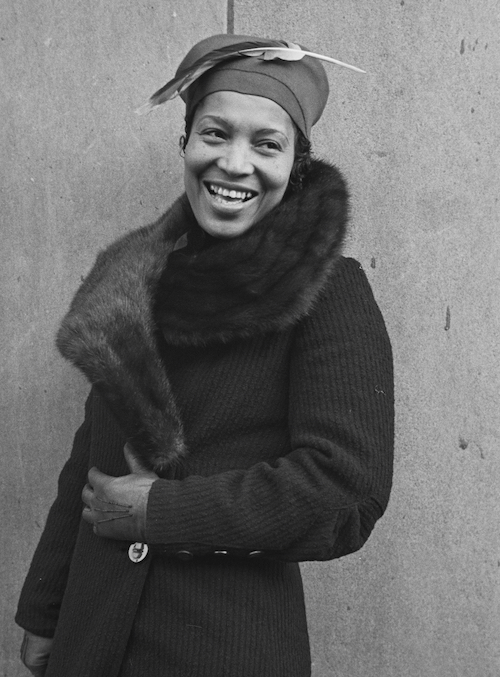Communiqué
New biography of the trailblazing writer and anthropologist, “Zora Neale Hurston: Claiming A Space” on AMERICAN EXPERIENCE, Jan. 17 at 9 pm
< < Back toAMERICAN EXPERIENCE
“Zora Neale Hurston: Claiming A Space”
Tuesday, January 17 at 9 pm
PBS and AMERICAN EXPERIENCE announced “Zora Neale Hurston,” a new biography of the influential author whose groundbreaking anthropological work would challenge assumptions about race, gender and cultural superiority that had long defined the field in the 19th century. Directed by Tracy Heather Strain, produced by Randall MacLowry and executive produced by Cameo George, the film will premiere on Tuesday, January 17 on PBS, PBS.org and the PBS Video app.

Best remembered for her novel Their Eyes Were Watching God, Zora Neale Hurston was a key figure of the Harlem Renaissance. But even as she gained renown in the Harlem literary culture of the 1920s, Hurston was also pursuing anthropological studies at Barnard College. Throughout her career, she struggled for recognition in two worlds—literary and scientific—writing novels and collecting folklore, drawing on her ethnographic expertise to inform her literary artistry. In more than a decade of fieldwork in the American South and the islands of the Caribbean, Hurston carefully documented stories, songs and religious rituals, often immersing herself fully in the cultures she studied. Driving around in a Nash coupe she called “Sassy Susie,” she traveled the back roads of her native Florida, later moving on to New Orleans to study hoodoo, or conjure religion, and then on to Haiti. Through her trailblazing work, Hurston would reclaim, honor and celebrate Black life on its own terms—an idea that remains radical today.
“Zora Neale Hurston has long been considered a literary giant of the Harlem renaissance, but her anthropological and ethnographic endeavors were equally important and impactful,” says AMERICAN EXPERIENCE executive producer Cameo George. “Her research and writings helped establish the dialects and folklore of African American, Caribbean and African people throughout the American diaspora as components of a rich, distinct culture, anchoring the Black experience in the Americas.”

